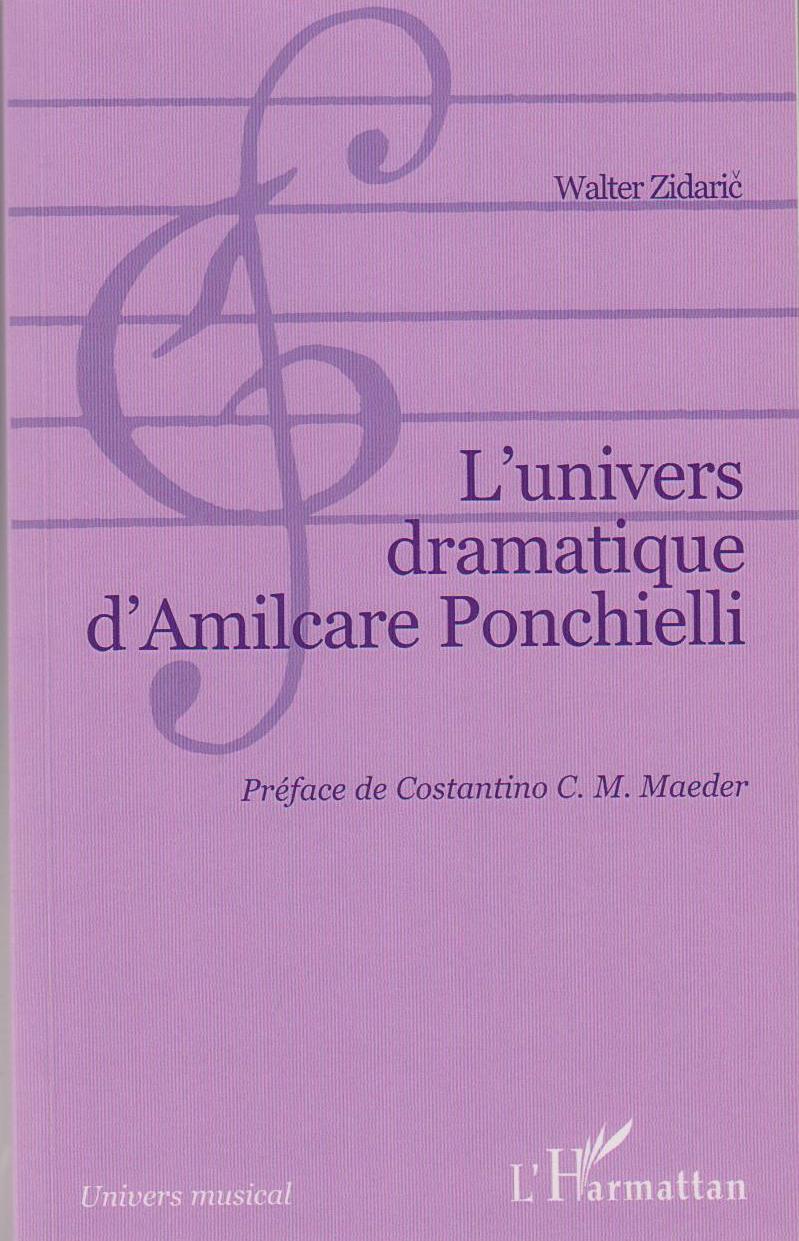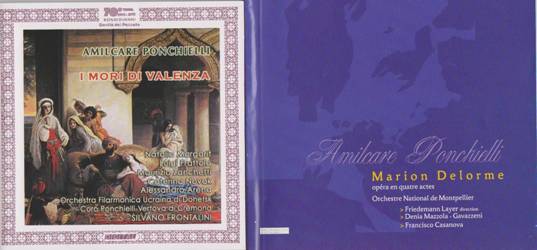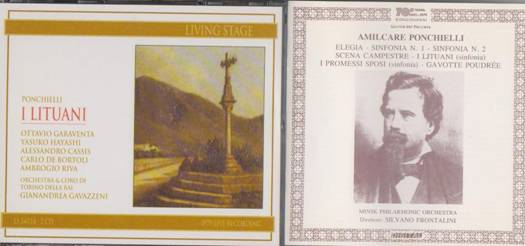
L'univers dramatique d’Amilcare Ponchielli
By Walter Zidaric
Paris 2010 , 278 pp

We are not rich in books on one of the only two Italian composers between Verdi and Mascagni who succeeded to put a work in the iron repertoire (Boito’s Mefistofele is the other opera next to Ponchielli’s La Gioconda). Two books in Italian by various authors appeared on Ponchielli in the eighties when the 100th anniversary of his untimely death was memorized but I have never found them. Probably the best piece on Ponchielli was written by the late Julian Budden as an entry in the New Grove Dictionary of Opera. Strangely enough, there is no reference to the eminent British scholar in the exhaustive bibliography of Walter Zidaric’s “L’univers dramatique d’Amilcare Ponchielli. “ As neither Budden’s almost definitive books on Verdi’s and Puccini’s operas (nor Osborne’s works nor Philips’ Verdi biography) are to be found, one can easily conclude that Mr. Zidaric belongs to the old French tradition of not knowing or wanting to know what is not published in French (though as a lecturer on Italian literature the author probably has a good knowledge of Italian). Music too seems to be not an important part of Mr. Zidaric’s assets. He only speaks in general and sometimes rather vague words on the actual music Ponchielli produced. We are told the composer was influenced by Wagner but never get real examples of the way the German’s innovations entered Ponchielli’s art. Mr. Zidaric too never produces a music example.

Still it would not do to discard the 278 page book as it has some real merit. The book starts with a short but interesting biographical essay on the composer. Mr. Zidaric knows the Italian operatic world of the 19th century and has an eye for telling details. We all know that Ponchielli became a professor at the Milan Conservatory where he taught Puccini and Mascagni. But Mr. Zidaric tells us that in an examination for the post Ponchielli came first thirteen years earlier but the musical and literature avant-garde of the day only wanted one of its own: conductor Faccio. This was only one of the many hurdles the composer met during a long and exhaustive struggle uphill. For years he played the organ in churches, composed and conducted band music, tried to find an outlet for his creativity in opera composing but simply didn’t have the money to buy a libretto and when he finally succeeded in saving enough money to pay Piave the writer had his fatal haemorrhaging. Starting his music career at age nine (as a full time pupil of course) Ponchielli had to wait till his 38th year before he finally scored a success with the second version of an earlier opera: I Promessi Sposi (now available on Bongiovanni). As a consequence he was rather unsure of his own talents. He didn’t compose in advance on self-made nonsense verse like Puccini sometimes did but duly waited till his libretto writers finally delivered the lines he needed so much. He always complained to friends on the bad librettos he got but he barely contacted the writers themselves, preferring to send his letters with his wishes to his music publisher Giulio Ricordi. There is only one letter known by Ponchielli to Arrigo Boito who wrote the text for the composer’s masterpiece La Gioconda. Critics often complained that libretto writers gave Ponchielli convoluted plots and too many lines but the composer himself didn’t cut them as Verdi did. He preferred cutting in a second, third or fourth version when theatres asked him to shorten or tighten his operas. All this Mr. Zardic explains in the second part of the book where in great details we get the genesis and the further adventures of Ponchielli’s best operas: I Promessi Sposi, La Gioconda, I Lituani and Marion Delorme. The author gives us a generous sprinkling of the often interesting correspondence of Ponchielli with everybody who had a say in his works and this makes for fascinating reading. Therefore it remains somewhat of a pity the author didn’t think of doing either it himself or working with a co-author on the musical side of things.

Jan Neckers